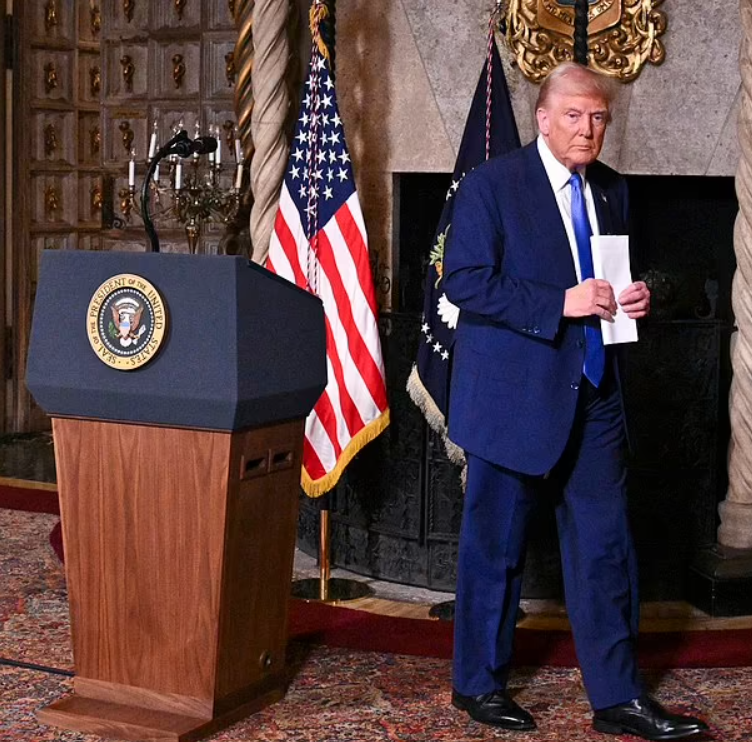
Donald Trump has signed an executive order that could make him the most powerful president in history by using an obscure Constitutional theory to enact his vision of presidential authority.
The new order seeks to ‘reign in independent agencies’ by seizing various departments that normally act in accordance with Congress and bring them under control of the executive branch in the White House.
The order also states that the president and attorney general will interpret the law, leaving Trump free from Congressional and judicial oversight.
Observers suggest that Trump is using unitary executive theory which grants the president a wide swath of authority.
The conservative theory argues that Article II of the U.S. Constitution, which delineates presidential powers, gives the president sole authority over all the executive branch’s officials and employees.
The unitary executive theory also claims the president has robust powers to override Congressional oversight on restrictions such as the ability to fire the heads of independent agencies.
Trump’s new executive order grants him power over various agencies such as The Federal Communications Commission, the Federal Trade Commission and the Securities and Exchange Commission.
Russel Vought, the so-called architect of Project 2025 turned head of the Office of Management and Budget, is said to be a big proponent of nixing executive bureaucracies, according to Politico.
The order allows Vought to ‘establish performance standards and management objectives for independent agency heads, as appropriate and consistent with applicable law, and report periodically to the President on their performance and efficiency in attaining such standards and objectives.’
Vought – who serves as acting director of the Consumer Financial Protection Bureau – has also been granted power of reviewing and changing the budgets for the agencies ‘to advance the President’s policies and priorities.’
Trump argues that this would allow the government to ‘be truly accountable to the American people.’
The president has also axed the heads of the National Labor Relations Board and the Office of Government Ethics.
Vought, alongside the White House Domestic Policy Council and National Economic Council, is allowed to bring these agencies in to ‘regularly consult with and coordinate policies and priorities’ under the order.
It also states that employees cannot ‘advance an interpretation of the law as the position of the United States that contravenes the President or the Attorney General’s opinion on a matter of law.’
The move jives with the president’s attempt to drain the swamp and have unencumbered power during his second term.
Trump has signed scores of executive directives in the past three weeks, many of which have and will been challenged in the courts as potentially unconstitutional. This latest EO will likely be no exception.



